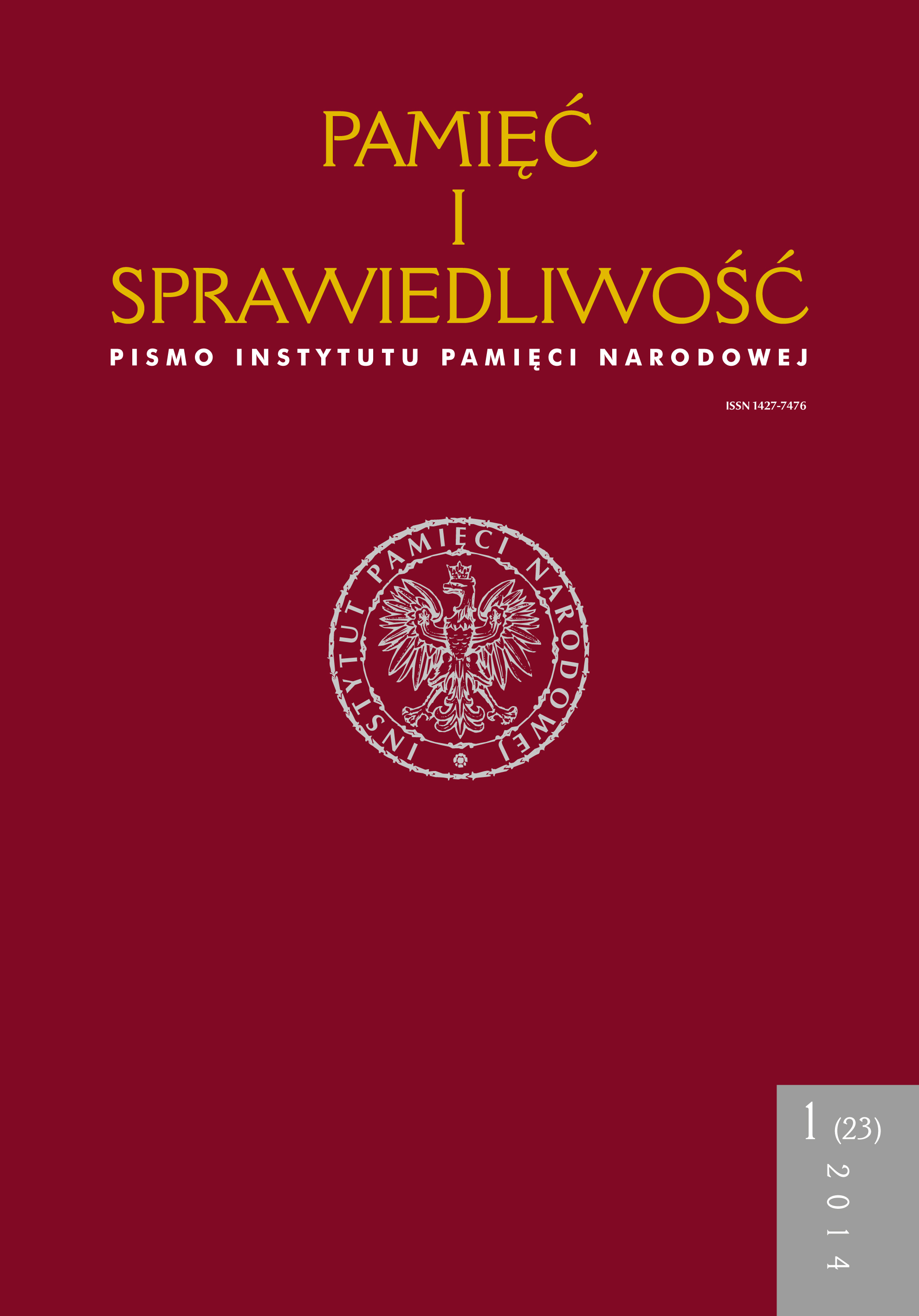Związek Walki Młodych i jego członkowie na Dolnym Śląsku w latach 1945–1948. Zarys problemu
Pamięć i Sprawiedliwość, Том 23 № 1 (2014), pages: 309-338
Publication date: 2014-06-30
Аннотация
The article deals with the description of activity of the Association of
Fighting Youth (ZWM) in three aspects. Firstly, on the basis of reports sent in from the
region and profiles of individual district chairmen of the association, it seeks to
portray youth activists and examine references concerning criminal activity of the
ZWM members which can be found in the literature on the subject. It turns out
that the association members often perpetrated malpractices which affected the
subsequent organisational activity. In some areas, negative opinions about youth
activists remained even in the 50s of the 20th century. All phenomena related to
the so-called “immoral conduct of members” also impinged on the nature of
activities undertaken which to a large extent can be considered superficial.
The second issue described in the article is the ZWM involvement in campaigns
before the June referendum and in the elections of January 1947. The author
examined the activity of district structures in this field, and submitted the findings
of literature on the subject to his critical review. An important activity in this area
was the participation of the ZWM members in the dissolution of the “Wici” Rural
Youth Association supporting the Polish People’s Party. The article shows that the
members of the Association of Fighting Youth actively supported the so-called Wici
Democratisation Committee, using methods having little to do with democracy.
The last issue discussed is the cooperation of ZWM with other organisations,
such as the Polish Workers’ Party (PPR), Voluntary Citizens’ Militia Reserve
(ORMO) and Youth Organisation of the Workers’ University Society (OMTUR).
The article describes the financial and organisational dependence of ZWM
structures on PPR, the participation of youth in the ORMO formations, and relations
with the “fraternal” OMTUR organisation. The author mentions the fact that,
despite the wishes expressed, the cooperation between PPR and its youth
organisation was far from unequivocal sympathy. ZWM was an aggressive structure
towards other youth organisations. It was focused on the dissolution of their
structures and the “union” of Polish youth.
 Język Polski
Język Polski
 English
English
 Deutsch
Deutsch
 Français (France)
Français (France)
 Italiano
Italiano
 Русский
Русский


 PDF (Język Polski)
PDF (Język Polski)
